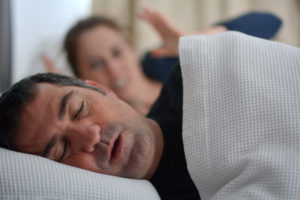 Dating back to the days of Hippocrates (the accepted father of medicine), there has been an understanding that one’s health should be viewed from a holistic standpoint. That means certain issues can be related to other dysfunctions. When it comes to sleep apnea in Columbus, there is evidence that it can lead to the development of diabetes. As you continue reading, the possible correlation between the two conditions is explored. By being informed and taking the appropriate actions to get a better night’s rest, you have a much better chance of improving your overall health.
Dating back to the days of Hippocrates (the accepted father of medicine), there has been an understanding that one’s health should be viewed from a holistic standpoint. That means certain issues can be related to other dysfunctions. When it comes to sleep apnea in Columbus, there is evidence that it can lead to the development of diabetes. As you continue reading, the possible correlation between the two conditions is explored. By being informed and taking the appropriate actions to get a better night’s rest, you have a much better chance of improving your overall health.
Understanding Type 2 Diabetes
The most common form of diabetes is Type 2, which is also referred to as adult-onset diabetes. The condition affects the way your body metabolizes glucose (sugar), as it becomes resistant to insulin, which is the primary hormone that controls this activity. This can result in fatigue, increased thirst and headaches. If diabetes goes untreated, it can lead to skin infections, diminished vision, stomach issues and other serious health challenges.
The Possible Connection Between Type 2 Diabetes and Sleep Apnea
Nearly half of the people with Type 2 diabetes develop sleep apnea. The latter involves reoccurring pauses in breathing while a person sleeps. The breath lapses trigger the brain to send distress signals that cause the person to awaken, which deprives them of the normal benefits of a restful night of sleep.
One of the common traits that can be found among people with Type 2 diabetes and sleep apnea is obesity. In addition to making a person insulin resistant, being overweight can result in increased neck girth that can cause the airway to collapse while sleeping. This can encourage sleep apnea.
The Warning Signs of Sleep Apnea
Here are some of the indicators that you may be suffering from sleep apnea:
- Bed-wetting
- Loud snoring
- Daytime lethargy
- Bouts of depression
- Breath lapses while sleeping
- Increased blood pressure
If you suspect that you have either diabetes or sleep apnea, then it’s critical that you let your doctor know so that you can receive a blood work-up and, if needed, undergo a sleep test. In the event that you’re diagnosed with sleep apnea, your local sleep dentist can help you tackle the issue.
One of the most convenient methods of treating the condition is to be fitted with a custom oral sleep appliance that is designed to keep your airway open while you sleep at night. By being proactive and seeking the help you need, you can vastly improve your overall health and finally get the rest you’ve been missing out on.
About the Author
Dr. Eric Buck is a graduate of The Ohio State University College of Dentistry. A member of the American Academy of Dental Sleep Medicine, he uses his vast knowledge and years of experience to help patients overcome sleep apnea at The Columbus Sleep Center. Dr. Buck can be reached for more information through his website.
